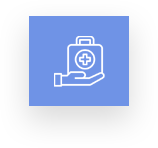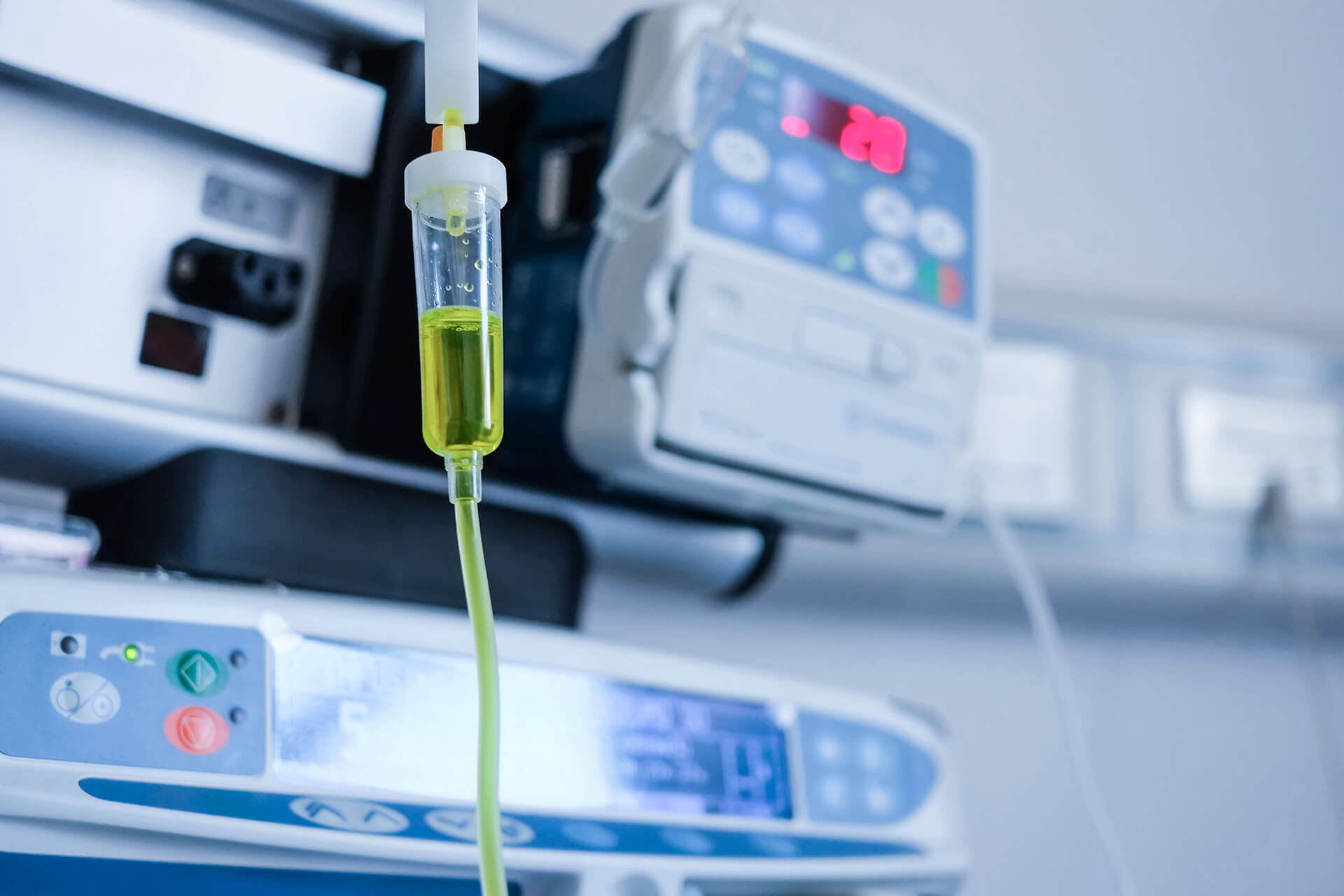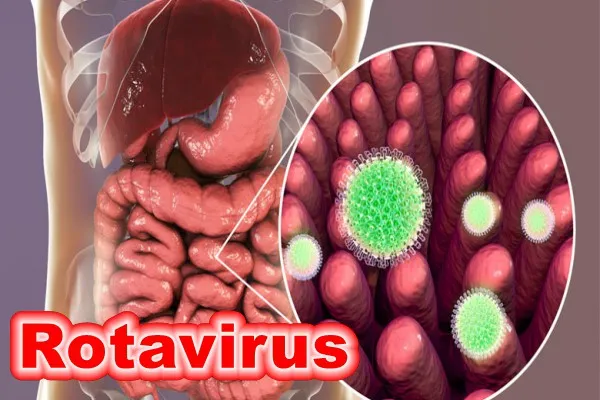
What is rotavirus type A?
Rotavirus is a genus of double-stranded RNA viruses in the family Reoviridae. There are nine species of the genus, referred to as A, B, C, D, F, G, H, I and J. Rotavirus A is the most common species, and these rotaviruses cause more than 90% of rotavirus infections in humans.
Symptoms
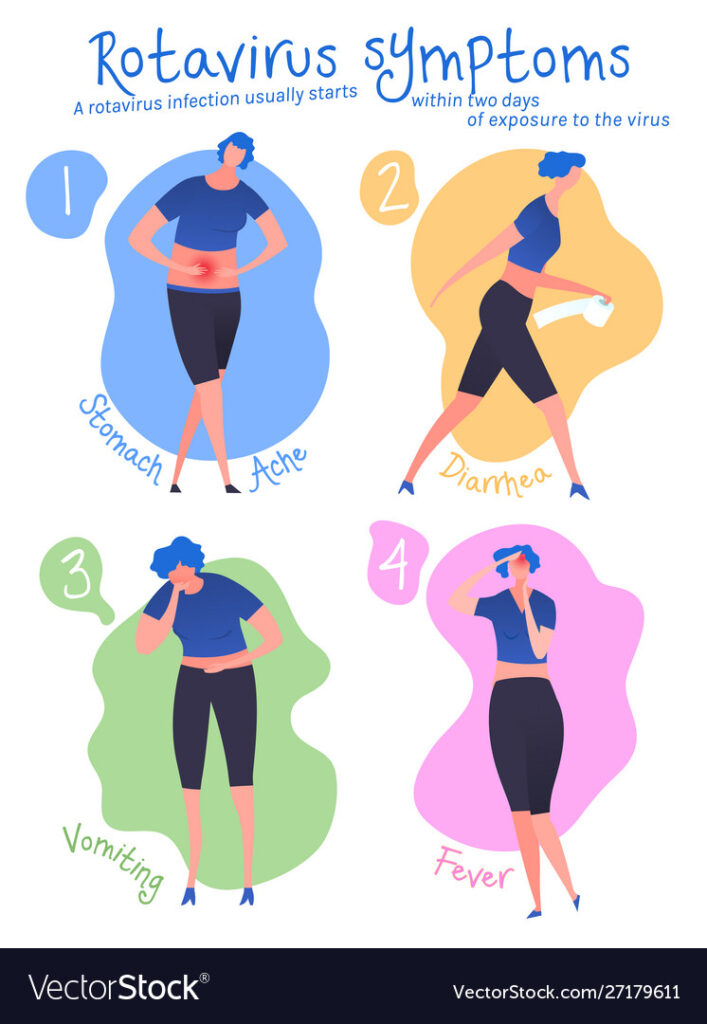
Rotavirus Test Procedure
Is rotavirus the stomach flu?
Rotavirus is a common cause of gastroenteritis, often called stomach flu. The virus infects the stomach and intestines. It causes vomiting and diarrhea, especially in babies and young children. Infections are common during the winter and spring months, especially in childcare centers..
Rotavirus Test
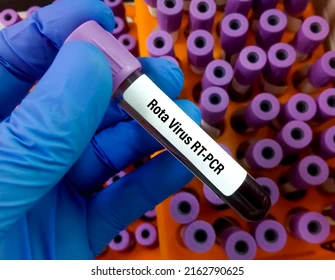
Rotavirus antigens can be detected in stool samples through enzyme-linked immunosorbent assay and immunochromatography (ICG), and reverse transcription polymerase chain reaction (RT-PCR)-based assays can be used to detect viral RNA.
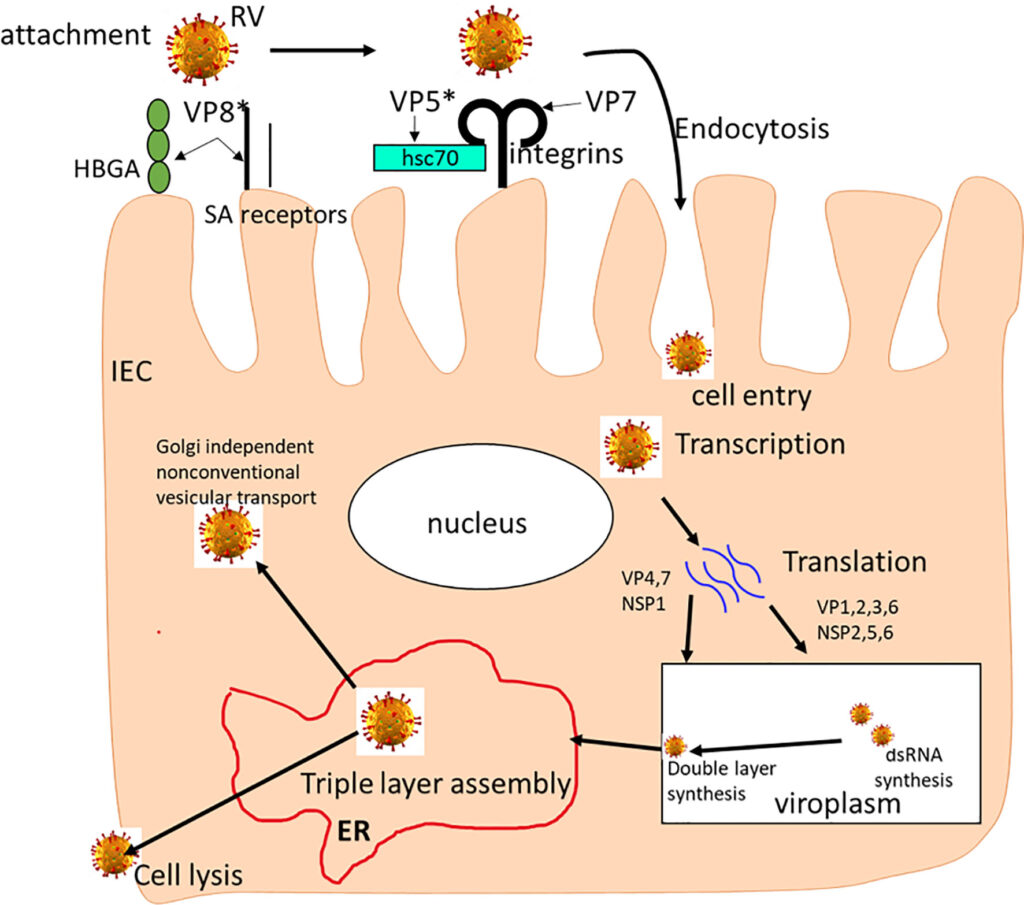
Symptoms and Causes
What are the symptoms of rotavirus?
The most common rotavirus symptoms include:
- Severe, watery diarrhea.
- Vomiting.
- Fever.
- Loss of appetite.
The vomiting and diarrhea may also cause dehydration in babies and young children. Contact your child’s healthcare provider right away if your child has symptoms of dehydration, including:
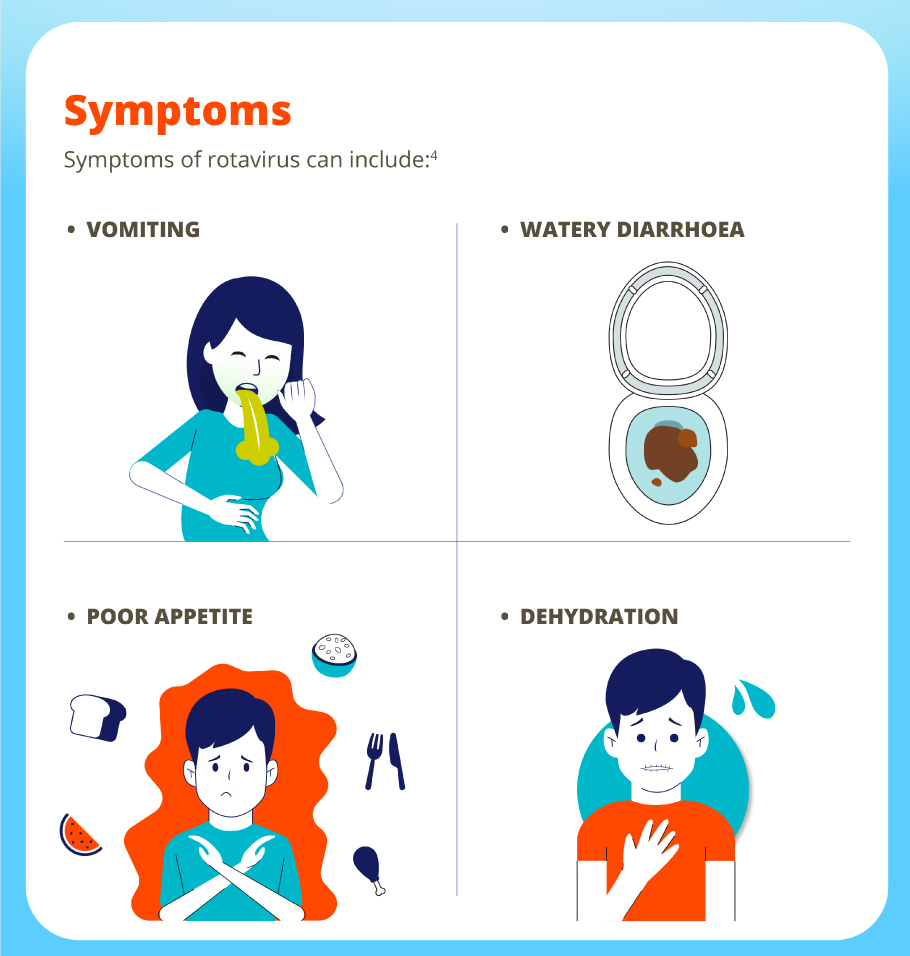
What causes rotavirus?
Rotavirus is a virus that spreads through hand-to-mouth contact. It shows up in an infected child’s poop (stool) a few days before symptoms start. And it can remain in your child’s bowel movements for up to 10 days after symptoms stop.
Is rotavirus contagious?
Rotavirus is very contagious. Before the rotavirus vaccines, most children got rotavirus by the age of 5. Since the vaccines, the number of children who get rotavirus infection has dropped.
How does rotavirus spread?
Rotavirus spreads through contact with poop. For example, you might change a soiled diaper of a baby with rotavirus. If you don’t wash your hands afterward, you could get virus particles in your mouth. Family members need to wash their hands well to prevent the virus from spreading.
Who’s at risk for rotavirus?
Typically, children in daycare or other programs with large numbers of children are at a higher risk. Children between the ages of 3 months and 3 years who haven’t received the vaccine tend to get the most severe disease.
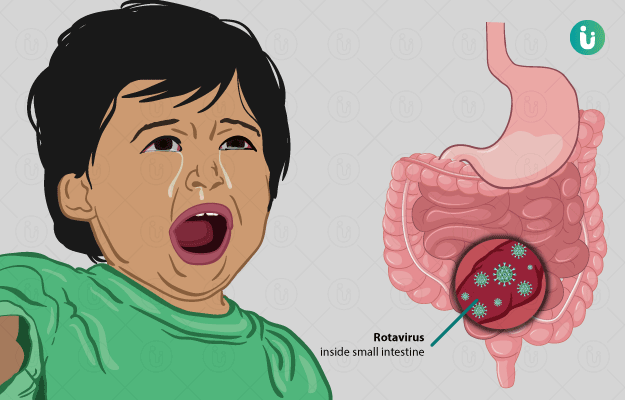
How is rotavirus diagnosed?
If your child has signs of rotavirus, contact their healthcare provider. Providers can often diagnose rotavirus based on symptoms and a physical examination. In some cases, they may take a stool (poop) sample to test it for rotavirus. But this step usually isn’t necessary.
If you do need to take a stool sample, your child’s provider will give you a sterile (germ-free) container. You collect some of your child’s stool in the container. A lab analyzes the stool for rotavirus.
Management and Treatment
Is there a medicine for rotavirus?
A virus causes rotavirus, not bacteria. So antibiotics won’t help your child feel better. The virus should clear on its own after about a week. The main rotavirus treatment is to keep your child hydrated.
Can rotavirus be treated at home?
Yes. Contact your child’s healthcare provider if you notice rotavirus symptoms. They may recommend you:
- Give your child smaller, more frequent feedings instead of larger meals.
- Make sure your child gets enough fluids.
- Use an electrolyte replacement such as Pedialyte®. Electrolytes help keep body systems in balance, but you can lose them through vomiting and diarrhea. Replacements can fix that. Just make sure to follow the instructions on the label carefully.
- Give your child acetaminophen (Tylenol®) to lower a fever. Don’t give your child aspirin.
- Wash your hands after changing diapers or touching stool.
- Make sure your child gets plenty of rest.
- Keep your child home instead of going to daycare/school.
- Follow up with your healthcare provider as necessary.
What else can I do to protect against rotavirus?
The vaccine is your best defense against the disease. It’s also crucial to practice good hand washing. Wash your hands frequently with soap and water for at least 20 seconds:
- After using the bathroom.
- After changing a diaper or helping a child use the bathroom.
- Before preparing food.
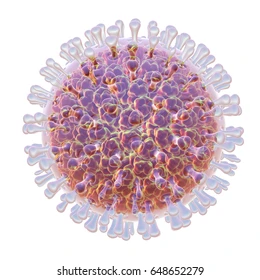
Rotavirus vs. norovirus — what’s the difference?
Rotavirus and norovirus are both gastrointestinal infections that cause inflammation of your stomach and intestines, but they’re different conditions caused by different viruses. Rotavirus mostly affects children, while norovirus can affect people of any age. The symptoms of norovirus tend to pass quicker (between one and three days) than rotavirus, which lasts between three and eight days. In addition, there’s a vaccine available to protect against rotavirus, but there’s no vaccine available for norovirus yet.




